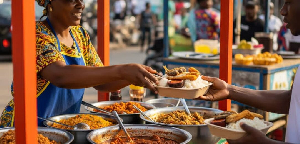In a push to highlight the critical role of hygiene, the Minister of Sanitation and Water Resources, Lydia Seyram Alhassan, has called for a nationwide commitment to regular handwashing with soap.
She stressed that this simple yet vital practice can significantly reduce the spread of diseases like diarrhoea and respiratory infections.
“Handwashing with soap is essential as it removes harmful microorganisms before they can enter our bodies or be passed on to others. This can cut school absenteeism due to diarrhoea and influenza by up to 50%,” Ms Alhassan noted.
Read Also: Award-winning photographer found stabbed to death; son charged with murder
She made this call during the Global Handwashing Day celebration in Accra, where officials from various sectors, including traditional leaders, development partners, students, and journalists, gathered to raise awareness about the importance of hand hygiene.
Decline in Handwashing Practices
Despite the proven benefits of handwashing, Ms Alhassan expressed concern over the decline in hygiene practices, especially after the COVID-19 pandemic.
She noted that many handwashing stations have disappeared or become non-functional, with a lack of soap or water, particularly in schools, hospitals, and public places.
“Parents, teachers, institutions, the private sector, and the media must come together to prioritize hand hygiene as a national issue. The power to save lives is literally in our hands,” she emphasized.
Ongoing Efforts and Challenges
Aloysius Adjetey, Chief Executive of the Community Water and Sanitation Agency (CWSA), echoed the minister’s sentiments, urging for increased efforts to make hand hygiene a priority across the country. He highlighted the significant strides made by the CWSA in promoting hand hygiene but acknowledged ongoing challenges.
According to data from the Multiple Indicator Cluster Survey (MICS) of 2017/18, only 48% of Ghanaians have access to handwashing facilities with soap and water at home.
“This means more than half of the population is without access to proper handwashing facilities,” Mr. Adjetey stressed, calling it a major obstacle in preventing disease and promoting public health.
The CWSA is committed to engaging stakeholders and development partners, including In a push to highlight the critical role of hygiene, the Minister of Sanitation and Water Resources, Lydia Seyram Alhassan, has called for a nationwide commitment to regular handwashing with soap. She stressed that this simple yet vital practice can significantly reduce the spread of diseases like diarrhoea and respiratory infections.
“Handwashing with soap is essential as it removes harmful microorganisms before they can enter our bodies or be passed on to others. This can cut school absenteeism due to diarrhoea and influenza by up to 50%,” Ms Alhassan noted.
She made this call during the Global Handwashing Day celebration in Accra, where officials from various sectors, including traditional leaders, development partners, students, and journalists, gathered to raise awareness about the importance of hand hygiene.
Decline in Handwashing Practices
Despite the proven benefits of handwashing, Ms Alhassan expressed concern over the decline in hygiene practices, especially after the COVID-19 pandemic. She noted that many handwashing stations have disappeared or become non-functional, with a lack of soap or water, particularly in schools, hospitals, and public places.
“Parents, teachers, institutions, the private sector, and the media must come together to prioritize hand hygiene as a national issue. The power to save lives is literally in our hands,” she emphasized.
Ongoing Efforts and Challenges
Aloysius Adjetey, Chief Executive of the Community Water and Sanitation Agency (CWSA), echoed the minister’s sentiments, urging for increased efforts to make hand hygiene a priority across the country. He highlighted the significant strides made by the CWSA in promoting hand hygiene but acknowledged ongoing challenges.
According to data from the Multiple Indicator Cluster Survey (MICS) of 2017/18, only 48% of Ghanaians have access to handwashing facilities with soap and water at home. “This means more than half of the population is without access to proper handwashing facilities,” Mr. Adjetey stressed, calling it a major obstacle in preventing disease and promoting public health.
The CWSA is committed to engaging stakeholders and development partners, including UNICEF and WaterAid, to ensure that handwashing with soap becomes a national norm in Ghana.
Mr. Adjetey encouraged all citizens to work toward a future where hand hygiene is embraced both inside and outside the home. and WaterAid, to ensure that handwashing with soap becomes a national norm in Ghana.
Mr. Adjetey encouraged all citizens to work toward a future where hand hygiene is embraced both inside and outside the home.

























